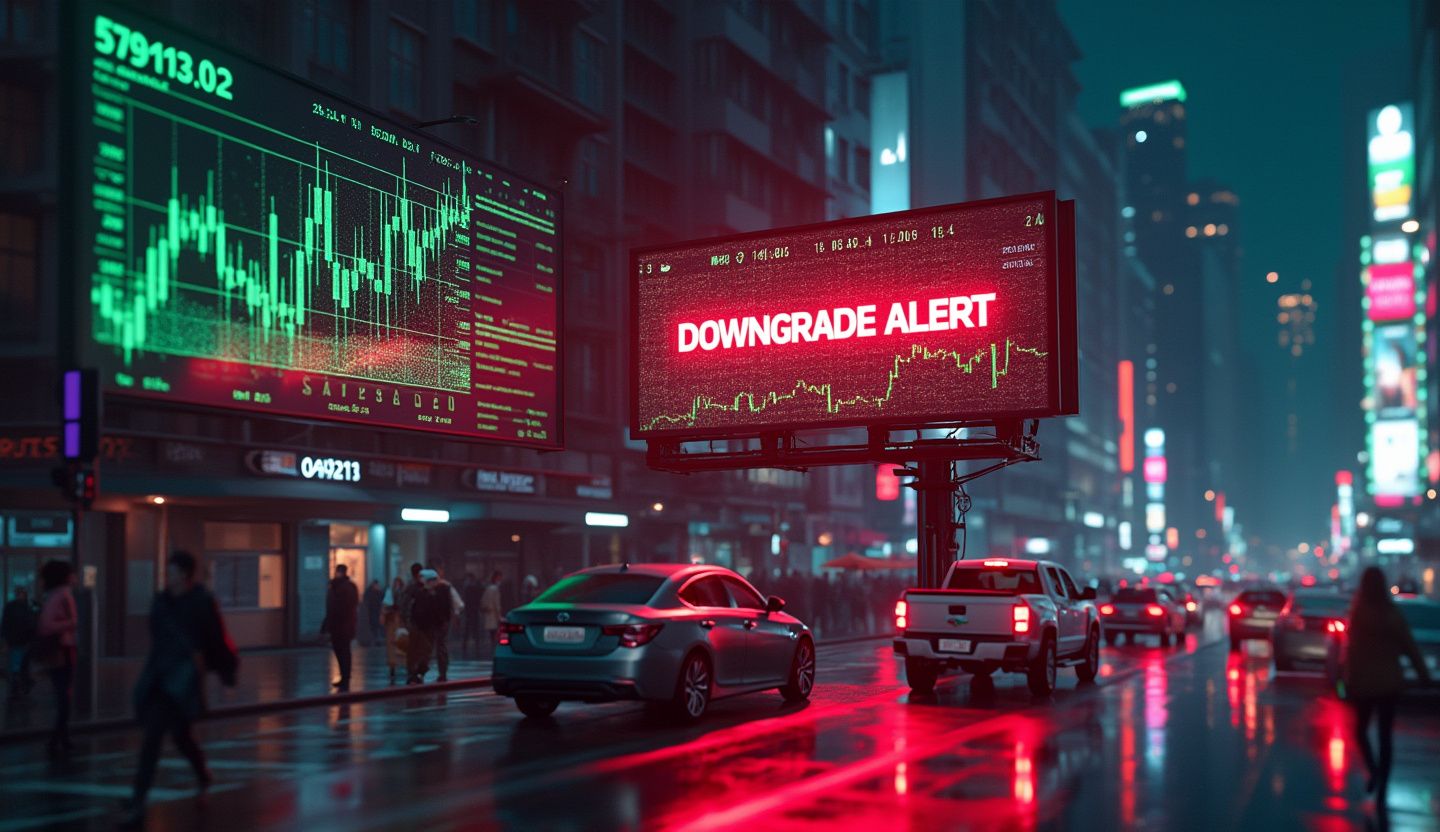A Surprising Shift in SoFi Technologies: Downgrade by Keefe Bruyette
SoFi Technologies, Inc. (NASDAQ: SOFI) has recently caught the attention of the investment community with a significant rating downgrade from Keefe Bruyette, a respected name in the financial analysis sector. The downgrade from 'Market Perform' to 'Underperform' comes amid valuation concerns raised by analysts. While the firm has adjusted its price target slightly upward from $7 to $8, the overall sentiment suggests caution for investors. Understanding the implications of this downgrade and its potential impact on SoFi's stock performance is crucial for those holding or considering investing in SOFI.
Key Takeaways
Downgrade Details: Keefe Bruyette has downgraded SoFi's rating to 'Underperform' with a new price target of $8.
Potential Risks: The downgrade highlights valuation concerns, indicating that the stock might be overpriced compared to peers.
Current Stock Performance: SoFi's stock has experienced volatility, with a recent closing price of $15.40, significantly above the new target.
Recent Developments: Despite this, technical indicators suggest some support, as noted by analysts in recent news articles.
Understanding the Analyst Firm's Influence
Keefe Bruyette's Reputation
Keefe Bruyette is a well-established firm known for its deep expertise in the financial sector, especially in bank stocks and financial services. Their insights carry weight due to their consistent track record and specialized focus on financial markets.
New Rating and Price Target
The decision to downgrade SoFi reflects a strategic reassessment of the company's market position and valuation. Despite a higher price target, the 'Underperform' rating signals caution, suggesting that the stock may face headwinds in aligning its market price with intrinsic value.
SoFi's Financial Performance and Market Dynamics
Recent Financial Metrics
SoFi has shown robust financial performance with increased revenue streams and strategic expansions. However, the current valuation, priced at a premium over its peers, raises questions about future growth sustainability.
Stock Price Movements
Over the past year, SoFi's stock has had a volatile journey, reaching highs of $17.19 and lows of $6.01. The stock's price trend indicates a fluctuating market sentiment, influenced by broader market conditions and company-specific developments.
Potential Upside: What Investors Should Consider
Evaluating the Upside Potential
Given the current stock price of $15.40 and the new target of $8, the potential downside is significant. Investors should weigh this against SoFi's growth strategies and market expansion efforts.
Strategic Positioning
While the downgrade presents challenges, SoFi's strategic initiatives in fintech and digital banking could offer long-term growth opportunities, offsetting short-term market pressures.
Recent News and Expert Opinions
Industry Insights
Recent news articles highlight both the challenges and opportunities for SoFi. Concerns about overvaluation have been juxtaposed with positive technical analyses suggesting support levels that could stabilize the stock.
"SoFi Technologies has faced recent downgrades from analysts citing concerns over the company's high valuation. However, technical analysis, particularly moving averages, suggests potential support for the stock." - Benzinga
Conclusion
Investors should approach SoFi with a balanced perspective, considering both the immediate risks posed by the downgrade and the long-term potential driven by the company's strategic direction. As always, due diligence and a clear understanding of market dynamics remain key to informed investment decisions.
This comprehensive analysis aims to equip investors with the insights needed to navigate SoFi's current market scenario, providing a foundation for strategic decision-making in light of the recent downgrade.

.svg)
.svg)
.svg)
.svg)

.svg)

.svg)
















